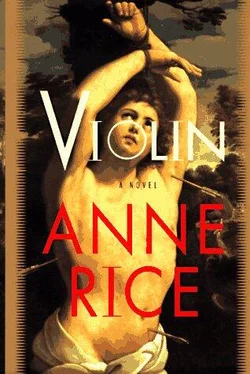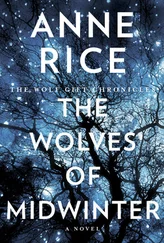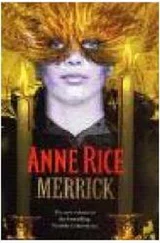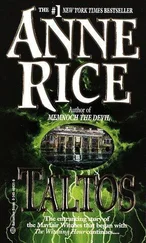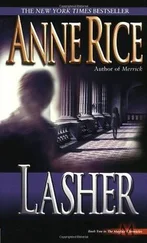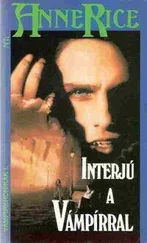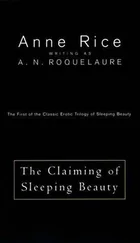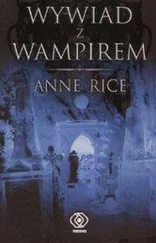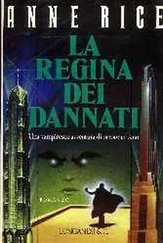I was gripped in a fierce chill. In memory I stood by Lily's grave, or was it Mother's? It was in that suffocating monstrous time before grief begins when everything is horror. Look at him, he's dead and he wanders and he wanders.
Through quaint small German towns with sloped roofs and crooked streets, he moved and we behind him-both of us bodiless again or anchored only in our shared perspective. He walked across great empty fields and into the light forest again. No one saw him! Yet he heard the rustling spirits gathering: he tried to see what moved above, below, beside.
Morning.
Coming down into the main street of a small town, he approached the butcher's stall, spoke to the man, but the man could not see or hear him. He touched the cook on her shoulder, tried to shake her, but though he saw his gesture plain enough in some deep conflict between will and fact, she sensed nothing.
A priest came in a long black cassock, bidding good morning to the early shoppers. Stefan grabbed hold of him, but the priest could not see or hear him.
He was wild, watching the milling village crowd. Then solemn, trying desperately to reason on this.
Now, with greater clarity, he saw the dead hovering near. He saw what could only be ghosts, so broken and fragmented were their human shapes, and he stared at them as a living being might, in terror.
I squeezed my eyes shut; I saw the small rectangle of Lily's grave. I saw the handfuls of dirt strike the small white coffin. Karl cried, "Triana, Triana, Triana!" as I said over and over, "I'm with you!" Karl said, "My work's undone, unfinished, look at it, Triana, there is no book, it's not done, it's-look, where are the papers, help me, it's all ruined.
No, go away from me.
Behold this figure staring at the other shades who come as if drawn by his sheen.
He feared; he searched their evanescent faces. Now and then he called out the names of the dead he had known in childhood, beseechingly, and then with a twisted frantic look, fell silent.
No one had heard this noise.
I moaned, and the figure beside me held me tight, as if he too could scarcely bear the sight of his own stranded soul, vivid and beautiful in his cloak and shimmering hair, in the middle of a crowd no more or less brilliantly tinted than himself that couldn't see him.
Deliberately he grew calm. The tears hovered, giving his eyes that great lustrous authority that motionless tears give. He lifted the violin and looked at it. He put it to his shoulder.
He began to play. He closed his eyes and gave himself to his terror in a mad dance that would have drawn applause from Paganini, a protest, a lament, a dirge and, slowly, opening his eyes, as the bow moved, as the music ripped through us, he realized no one, no one in the square of this town,no one anywhere near or far could see or hear him.
For one moment he faded. Holding the violin in his right hand and bow in the left, he brought these hands up to his ears and bowed his head, but as the color drained from his shape, he shuddered all over and opened his eyes wide. The air around him swirled with ever more visible spirits.
He shook his head; he brought his mouth back a3 a child might when crying.
"Maestro, Maestro!" he whispered. "You are locked in your deafuess, and I am locked out of all hearing! Maestro, I am dead! Maestro, I am as alone now as you are! Maestro, they cannot hear me!" He screamed the words.
Did days pass?
Years?
I clung to my Stefan, the guide in this murky world, shivering though there was no real cold, watching the figure walk again, and now and then lift the violin to his ear and play some frantic series of notes, only to stop in rank rage, his teeth clenched, his head shaking.
Vienna once more perhaps. I didn't know. An Italian city. It might have been Paris. I didn't know. The details of those times were too mingled in my mind from study and imagining.
He walked on.
The sky above became not so much a measure of anything natural but a canopy for an existence apart from nature, a great black fabric snagged with carelessly flung stars like diamonds on a mourner's veil. At morn sometime s, a lowering drape.
In a graveyard of rich tombs, the wanderer stopped. We were invisible again, close to him. He looked at the tombs, he read the names on them. He came to the tomb of Van Meck. He read his Father's name. He wiped the thick crust of dirt and moss from the stone.
Time was no longer fixed to the clock and the watch. He drew out his pocket watch and stared at it, and the face said nothing back to him.
Other spirits clustered in the uneven dark, curious, drawn by his firm movements and bright color. He peered into their faces.
"Father?" he whispered. "Father?"
The spirits shied away, as if they were balloons in the wind, tied on loose string that could be swept to right or left by one blow to the cords that bound them to the earth.
The full realization came over his face now. He was dead, most definitely dead.
He was not merely dead, but surely isolated from any other ghost like himself!
He searched the air and the earth for another sentient phantom-as determined, as full of misery. He found nothing.
Did he see it as my Stefan and I saw it now?
Yes, you and I see now what I saw then-what I saw, knowing only that I was dead, and not what it meant that I still walked on earth, what I might do in this wretched perdition-knowing only that I moved from place to place, that nothing bound me or constricted me or comforted me, knowing only that I had become no one!
Into a small church we wandered during Mass. It was in the German style but simpler from the earlier days before the Rococo had covered over Vienna. Gothic arches rose from these rosetted columns. The stones were large and unpolished. The congregation were country folk, and chairs were few, almost none.
His spectral appearance hadn't changed. He was still the sturdy polychrome vision.
He watched the distant ceremony on the Altar beneath the blood red canopy held by Gothic saints, starved, gnawed, venerable, and clumsily positioned there as stanchions.
Before the high crucifix, the priest raised the round white consecrated host, the magic wafer, the miraculously palatable body and blood. I could smell the incense. The tiny bells rang. The congregation murmured in Latin.
The ghost of Stefan looked coldly on them, trembling, as a man bound for execution might on the strangers who watch him walk to the gallows. But there was no gallows.
Out into the wind he went again, walking uphill, walking that walk that I imagine when I hear the Second Movement of Beethoven's Ninth, that dogged march. Up and up through the woods, up and up he walked. I thought I saw snow and then rain, but I didn't know. It seemed leaves swirled about him once and he stood in a shower of these yellow falling leaves, and staggered once onto a road to wave at a carriage that took no notice of him.
"But how did it start?" I said. "How did you break through? How did you become this strong tenacious monster that tortures me?" I demanded. In the blackness that shrouded us, I felt his cheek, and his mouth.
Oh, merciless question. You have my violin. Be still, watch. Or give me the instrument now. Haven 't you seen enough to know that it's mine, that it belongs to me, that I brought it over the divide and into this realm with my very life’s blood, and you hold it, so that I can't get it loose; the gods are mad, if they exist, that let such a thing happen. The God in Heaven is a monster. Learn from what you see.
"You learn, Stefan," I said. I clutched the violin all the more securely.
This brought only helpless need out of him at my side in the pitch dark where we hovered, his arms around me still, his forehead on my shoulder. He moaned as if confiding his pain, in a private code, his own hands covering mine, touching the wood and the strings of the violin but not seeking to pull it loose. I felt his lips move against my hair, finding the curve of my ear, and more so, I felt him pressed against me, urgent, trembling, unresolved. The heat inside me rose as if to warm both of us.
Читать дальше
